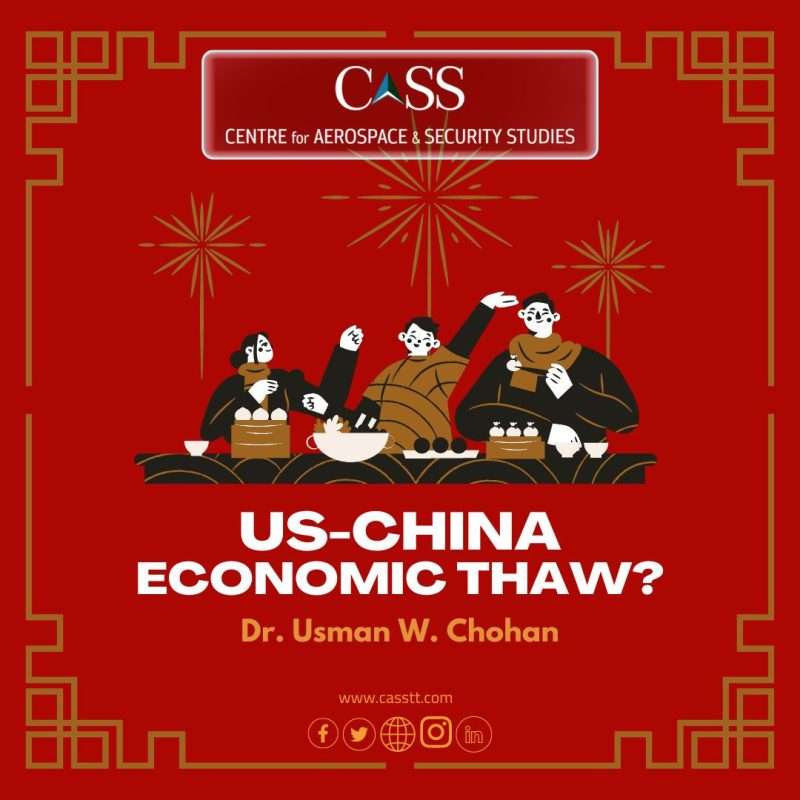Over the past few years, economic relations between the two global superpowers have been simultaneously characterized by sustained practical engagement and acrimonious rhetoric. The two-way US-China trade volume is $0.7 trillion dollars, which would suggest that the trading relationship is the linchpin of global commerce. Yet the rhetoric, particularly from the US, has been of competition and struggle, now largely overshadowed by a national-security logic. The low-point might be seen as the Anchorage meetings in March 2021, after which both sides openly denounced each other. Other events such as House Speaker Pelosi’s visit to Taiwan also created sour-spots of serious concern, and the Russo-Ukrainian war led to further polarization between both sides as the superpowers expressed support and edged towards opposing forces in the conflict. At the same time, increasing quid pro quo measures were taken by both sides, as when US sanctions on Chinese semiconductors led to Chinese controls on key minerals for semiconductors.
Recently, however, some efforts towards reconciliation of the rhetoric have occurred with the twin visits of US Secretary of State and of Treasury, Anthony Blinken and Janet Yellen respectively. While Blinken’s visit could be seen as something of an ice-breaker, having been the first visit of such an official in five years, Yellen’s visit had a considerably more cordial character. Her visit coincided with the appointment of a “new economic team” in Beijing, the technocat successors to Li Keqiang and his team who steered China through the Covid-19 pandemic and through other international turbulence. Yellen’s comments have been that the relationship is on “surer footing,” even as “significant” differences remain. Her observations were that her “conversations were direct, substantive, and productive,” so that both sides could “learn more about each other’s economies and policy choices, which I believe is vital as the world’s two largest economies.”
Should these discussions be seen as the beginning of a thaw? At the present juncture, it is difficult to see how US inconsistencies will manifest as the country moves towards the 2024 elections. “Getting tough on China” has become a political blackmailing tool that republicans use against democrat leaders in the legislature and executive branches, and they will use this hawkishness further as the election approaches. In Beijing, hawks are also making articulate cases for strong defensive stances, noting China’s weight in the global economy and geopolitics. The ideological stance of the Communist Party is also gravitating towards pre-Deng Xiaoping dispositions. As such, there are strong ideological and political forces on both sides that are dismissive of the current efforts to thaw relations.
However, it is important for both countries, particularly the US, to maintain vibrant, amicable, and active contact. Yellen’s post-visit remark that “the world is big enough for both the US and China” is apt and correct. The global economy depends on both sides to work together, at most in a “healthy competition,” but preferably in close coordination to solve the major problems of the world, which require international responses. Most countries, if not all, require robust economic engines of both superpowers to continue to grow and develop. Few countries are keen to see outright hostilities between both countries. Therefore, the recent visits of Blinken and Yellen augur well for resuming discussions, even if the two countries cannot come to agree on some issues.
Dr. Usman W. Chohan is Advisor (Economic Affairs and National Development) at the Centre for Aerospace & Security Studies, Islamabad, Pakistan. He can be reached at cass.thinkers@casstt.com.




